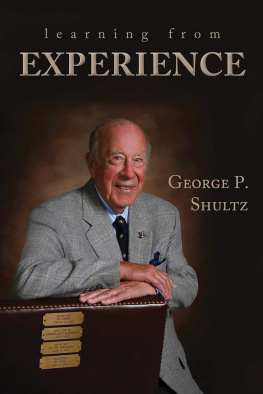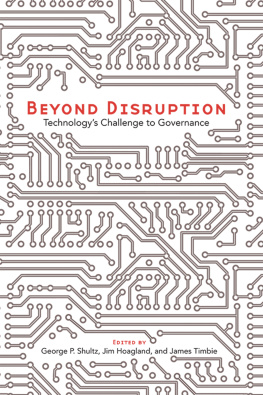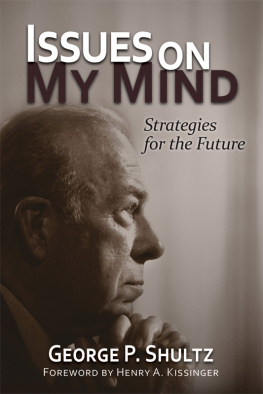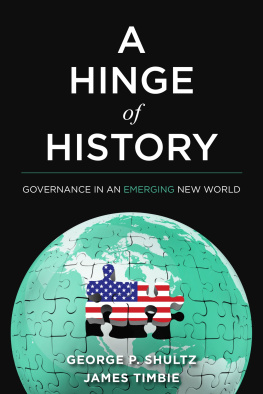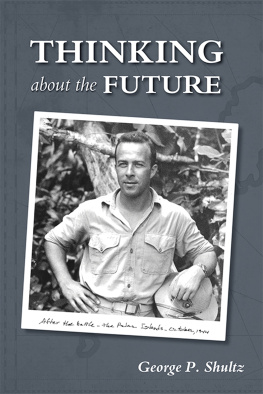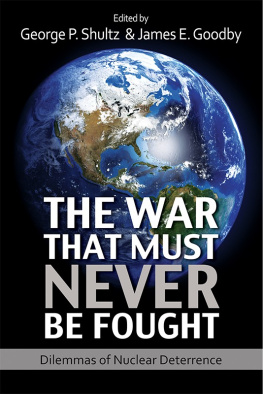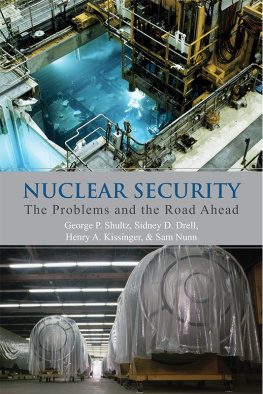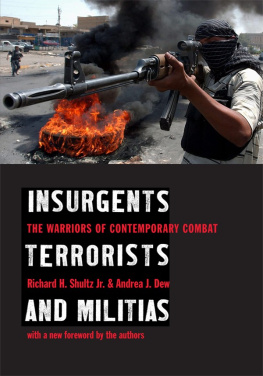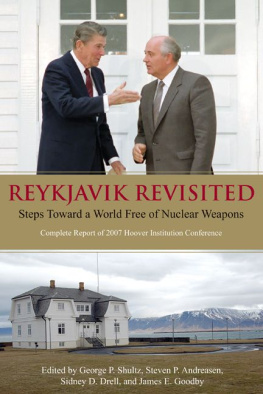Praise forLearning from Experience
Secretary Shultzs biography, Learning from Experience, is full of engaging stories, each of which has a lesson. How he, first of all, tended his garden so that when problems arose he was well-positioned to address them: how a diplomats skill in listening can be more important than his skill in talking; how solutions to knotty problems must benefit both sides if they are to last. But it is more than a retrospective account of an extraordinary life. It looks to the future and offers a visionary guide for success in an emerging new world full of disruptive technologies, shrinking time frames, and uncertainty: a world awash in change.
William Perry, a senior fellow at Stanford Universitys Hoover Institution and director of the Preventive Defense Project at the Freeman Spogli Institute for International Studies, served as US secretary of defense from 1994 to 1997.
This fascinating book by Americas best nonelected public servant of the second half of the twentieth century should be required reading for anyone interested in making public policy. It shows how a thoughtful approach to our national problems by someone who knows what he believes and why changed our world for the better. It shows how important it is for a public official never to stop learning or to fear taking a stand on principle. Again and again you see how head and heart combine to shape results. You also see how candor, preparation, and close observation can generate trust, which is the core of getting something done in our democracy and in the world.
Bill Bradley, a Rhodes Scholar and American Hall of Fame basketball player, served as US Senator from New Jersey from 1979 to 1997.
Learning from Experience is a wonderful read. The personal tone and firsthand stories throughout are fascinating, and they are filled with messages and lessons learned in all respects. This book is a very useful contribution to political-social-economic thought.
John Taylor, the George P. Shultz Senior Fellow in Economics at the Hoover Institution, served as US undersecretary of the Treasury for international affairs from 2001 to 2005.
George Shultzs extraordinary and invaluable public service has made our nation stronger, more just, and more secure. Georges lifeso fully engaged in the toughest of arenas yet so admirably livedprovides a guiding light for citizens and leaders. We should learn from and apply these remarkable lessons as individuals and as a nation.
Sam Nunn, cochairman and CEO of the Nuclear Threat Initiative, served as US senator from Georgia from 1972 to 1997 and chairperson of the Senate Armed Services Committee from 1987 to 1995.
The anthology by Shultz of some of his key decisions over decades of statesmanship reflects the authors extraordinary common sense, humanity, and commitment to principle. It should be widely read.
Henry Kissinger, founder and chairman of Kissinger Associates, served as national security adviser from 1969 to 1975 and US secretary of state from 1973 to 1977.
learning from
EXPERIENCE
learning from
EXPERIENCE
GEORGE P. SHULTZ
With its eminent scholars and world-renowned library and archives, the Hoover Institution seeks to improve the human condition by advancing ideas that promote economic opportunity and prosperity, while securing and safeguarding peace for America and all mankind. The views expressed in its publications are entirely those of the authors and do not necessarily reflect the views of the staff, officers, or Board of Overseers of the Hoover Institution.
Hoover Institution Press Publication No. 672
Hoover Institution at Leland Stanford Junior University,
Stanford, California 94305-6003
Copyright 2016 by the Board of Trustees of the
Leland Stanford Junior University
All rights reserved. No part of this publication may be reproduced, stored in a retrieval system, or transmitted in any form or by any means, electronic, mechanical, photocopying, recording, or otherwise, without written permission of the publisher and copyright holders.
For permission to reuse material from Learning from Experience, by George P. Shultz, ISBN 978-0-8179-1984-9, please access www.copyright.com or contact the Copyright Clearance Center, Inc. (CCC), 222 Rosewood Drive, Danvers, MA 01923, 978-750-8400.
CCC is a not-for-profit organization that provides licenses and registration for a variety of uses.
First printing 2016
Cataloging-in-Publication Data is available from the Library of Congress.
ISBN-13: 978-0-8179-1984-9 (cloth : alk. paper)
ISBN-13: 978-0-8179-1986-3 (epub)
ISBN-13: 978-0-8179-1987-0 (mobi)
ISBN-13: 978-0-8179-1988-7 (ePDF)
For Charlotte,
with my thanks for her inspiration and support.
Contents
Jim Hoagland
THE CONTEMPORARY WORLD is awash in profound and dangerous change, George P. Shultz writes in this groundbreaking book. His extraordinary career as counselor to three presidents and architect to the ending of the Cold War qualifies him to make this sweeping judgmentand to outline the best chances humanity has to avoid disaster at the global level. Most remarkably, he accomplishes this in a conversational, humanistic tone that gives the reader the feeling of sitting by a warm fireside listening to a wise friend describe the lessons that life has taught him at so many levels.
At an early age Shultz, in his own words, learned how to organize information so as to extract meaning. Here he organizes a lifetime of experiences in government, business, and academia to communicate meaning to a broad audience. I have read many diplomatic histories (and written detailed journalistic analyses for the Washington Post) about Shultzs time as Ronald Reagans secretary of state. But only in reading this account did I come to understand fully how Shultz established the personal trust with Mikhail Gorbachev and other foreign leaders on which state-to-state relations could be built and sustained in a moment of epochal change. It is a talent, and an approach, sorely needed today.
Shultzs prescriptions are notably nonpartisan. William J. Perry, secretary of defense under Bill Clinton, writes in a prepublication comment that Learning from Experience shows how Shultz first of all tended his garden so that when problems arose he was well-positioned to address them; how a diplomats skill in listening can be more important than his skill in talking; how solutions to knotty problems must benefit both sides if they are to last. But it is more than a retrospective account of an extraordinary life. It looks to the future and offers a visionary guide for success in an emerging new world full of disruptive technologies, shrinking timeframes, and uncertainty.
Shultzs account ranges far beyond the rarefied realm of diplomacy. It illuminates Americas race relations, defines a down-to-earth economic philosophy built on free markets and fair treatment of labor, and identifies the strengths and weaknesses of presidential leadership as seen through his time in Washington, including four cabinet posts, in the Eisenhower, Nixon, and Reagan administrations. Looking ahead, Shultz surveys the interrelated technological and political change that has created the need for an updating of the social contract between those who would govern and those who are governed. We may be witnessing, Shultz warns, the beginning of the end of the modern period and its structure of international relations.


